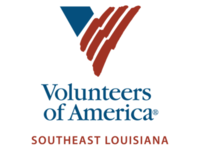Frequently Asked Questions
What is “openness” in adoption?
Openness in adoption means that all parties involved share information and work together to ensure a healthy, positive future for the baby. Openness eases the natural anxieties and fears of the unknown that birth parents, adoptive parents and eventually the child may face. The level of openness varies with each adoption, based on the wishes of the birth parents and the adoptive parents.
With openness in adoption, how does a birth parent participate in the baby’s life?
Openness in adoption generally means that birth parents choose the adoptive couple who will raise their child and have the opportunity to meet with the couple before the baby’s birth. While openness in adoption usually involves periodic updates, exchanges of photos and calls, it may include visits and a one-on-one relationship with the child. Birth parents and adoptive parents determine the level of openness before the birth.
Where do prospective adoptive couples in the Volunteers of America program live?
The majority are Louisiana residents who live close to metro New Orleans.
How do birth parents choose the couple who will adopt their child?
We believe it is important for birth parents to have as much input on the child’s adoption as possible. The expectant mother will have several profiles of prospective couples to view so that she can pick the family that she feels is best suited to parent her child. Once the expectant mother selects an adoptive family, she has the option to meet them in person. Our staff will assist the birth parents and the adoptive family in deciding the best plan for their follow-up contact. With the support and assistance of our staff, birth parents and adoptive families are able to form and navigate relationships with the child at the center of the decision making.
How soon after birth are babies placed in the new home?
The child may be placed with an adoptive couple as soon as the surrender papers are signed. In Louisiana, a birth mother must wait a minimum of three days following the child’s birth before signing a Voluntary Act of Surrender for Adoption.
What happens to the baby after delivery and before the adoption papers are signed?
The Adoption Program has receiving homes. Local couples care for the baby in their home until the adoption papers are signed. Depending on the situation, the adoptive couple may be willing to take the baby into their home as a “legal risk” until the birth parents sign the adoption papers.
What involvement does the birth father have in the adoption process?
The law requires, and we encourage, that the birth father must be involved in the adoption process. If he is unidentifiable, we will work with the birth mother to terminate the birth father’s rights through alternative means.
After the adoption is finalized, will the birth parents need to have any further contact with the agency?
No, but the staff strongly encourages you to meet with the social workers in the Adoption Program for follow up counseling. We believe that adoption is a loving decision, but we also recognize the need to have support and assistance in navigating this decision afterwards.
Before making a decision, can the birth mother speak to other women who have placed their child for adoption?
Many women considering adoption have questions best answered by other women who have placed children for adoption. Therefore, we have birth mothers who volunteer to work with pregnant women in our program. This “buddy system” allows women to help each other, form friendships and gain support.
What types of follow-up counseling are offered by the Adoption Program?
The staff is available for individual counseling at no cost to you following placement.
